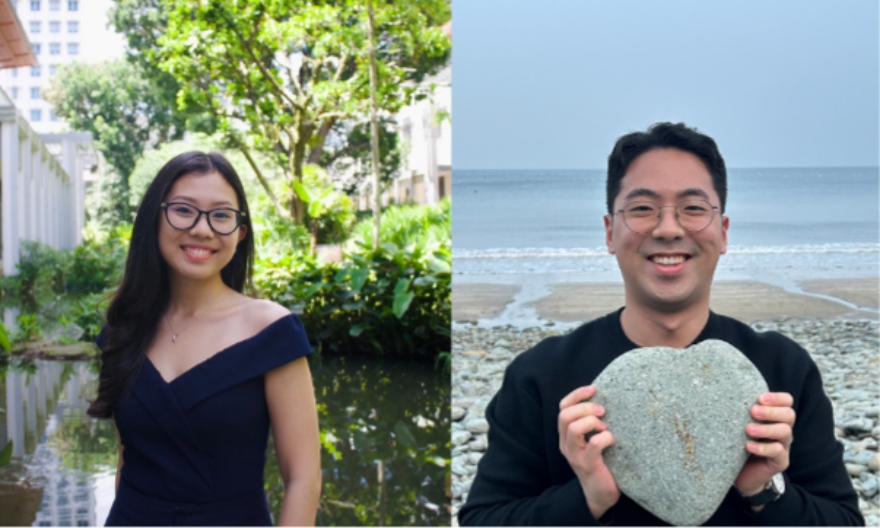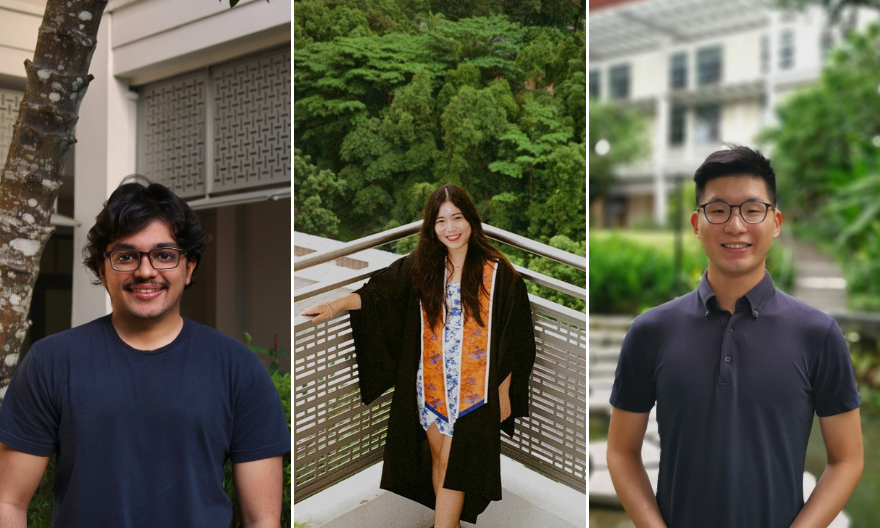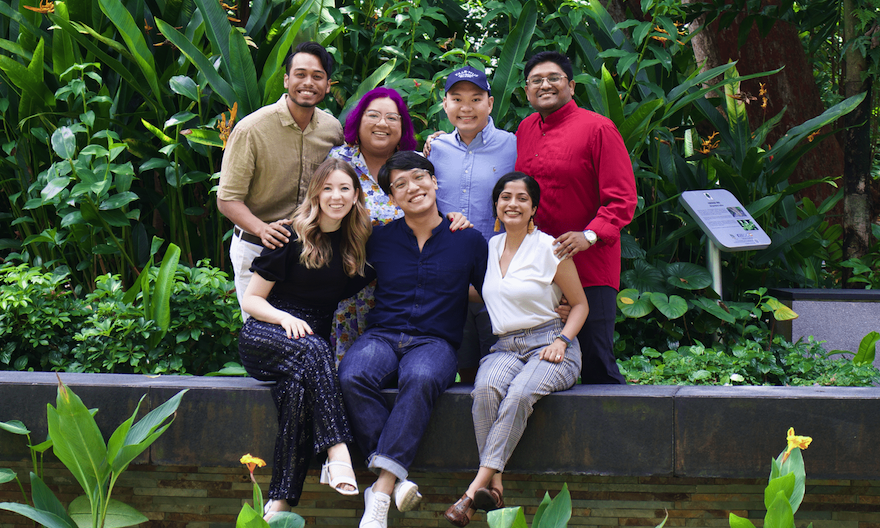Yale-NUS alumnus presents Singapore stories through comic books
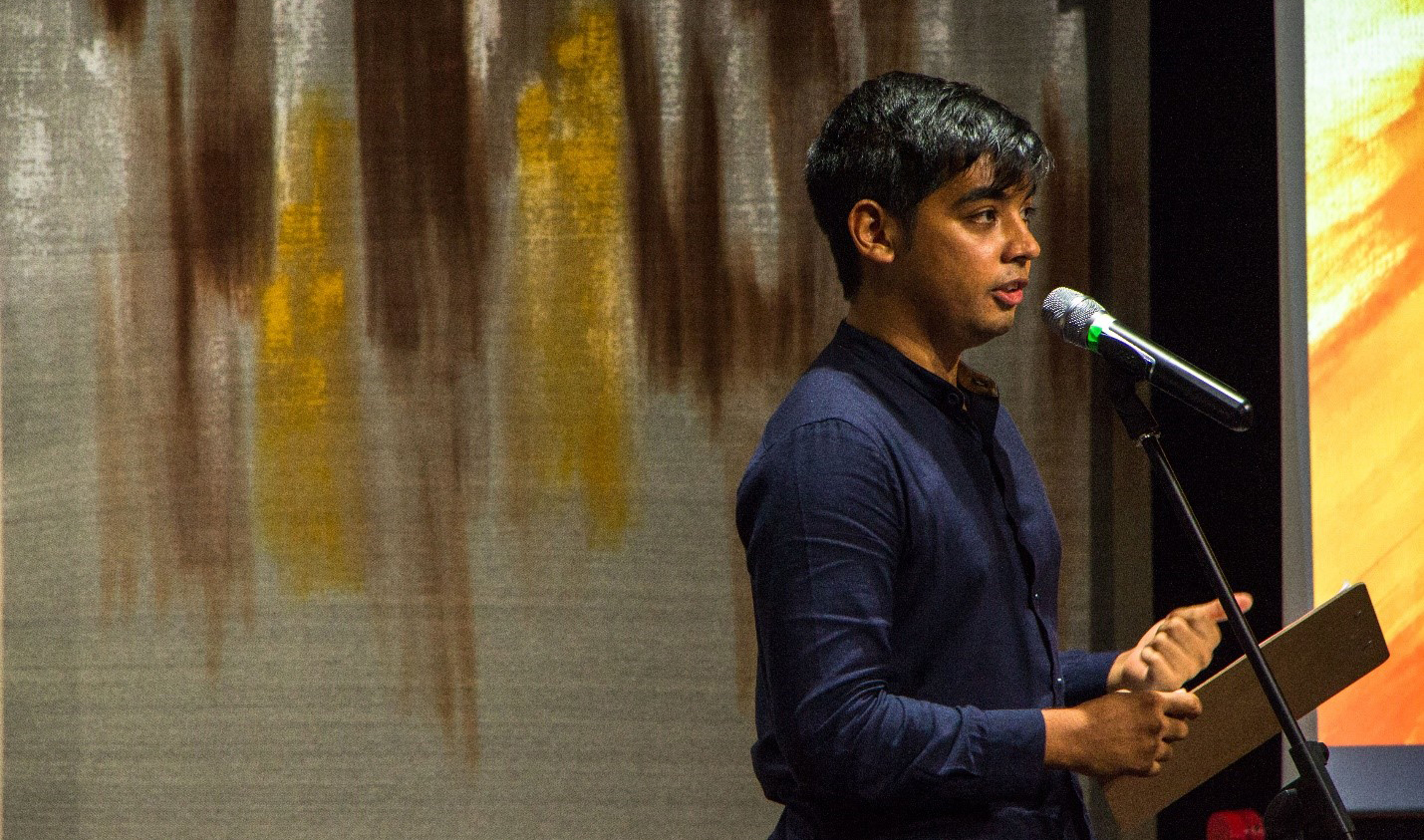 Alumnus Myle Yan Tay (Class of 2019). Image provided by Checkpoint Theatre and taken before the implementation of COVID-19 safe management measures.
Alumnus Myle Yan Tay (Class of 2019). Image provided by Checkpoint Theatre and taken before the implementation of COVID-19 safe management measures.
At Yale-NUS College, our students are equipped with diverse skill sets, enabling them to pursue a myriad of unique, interesting, and meaningful careers after graduation. Myle Yan Tay (Class of 2019) decided to focus on writing comic books after graduating with a major in Global Affairs.
Seeking to highlight Singaporean experiences and culture, his first two published books, Putu Piring and Through the Longkang #1, were launched earlier this year. The former is a melancholic short story about growing up and nostalgia, while the latter is a horror adventure story about a boy who goes missing while exploring a longkang (canal).
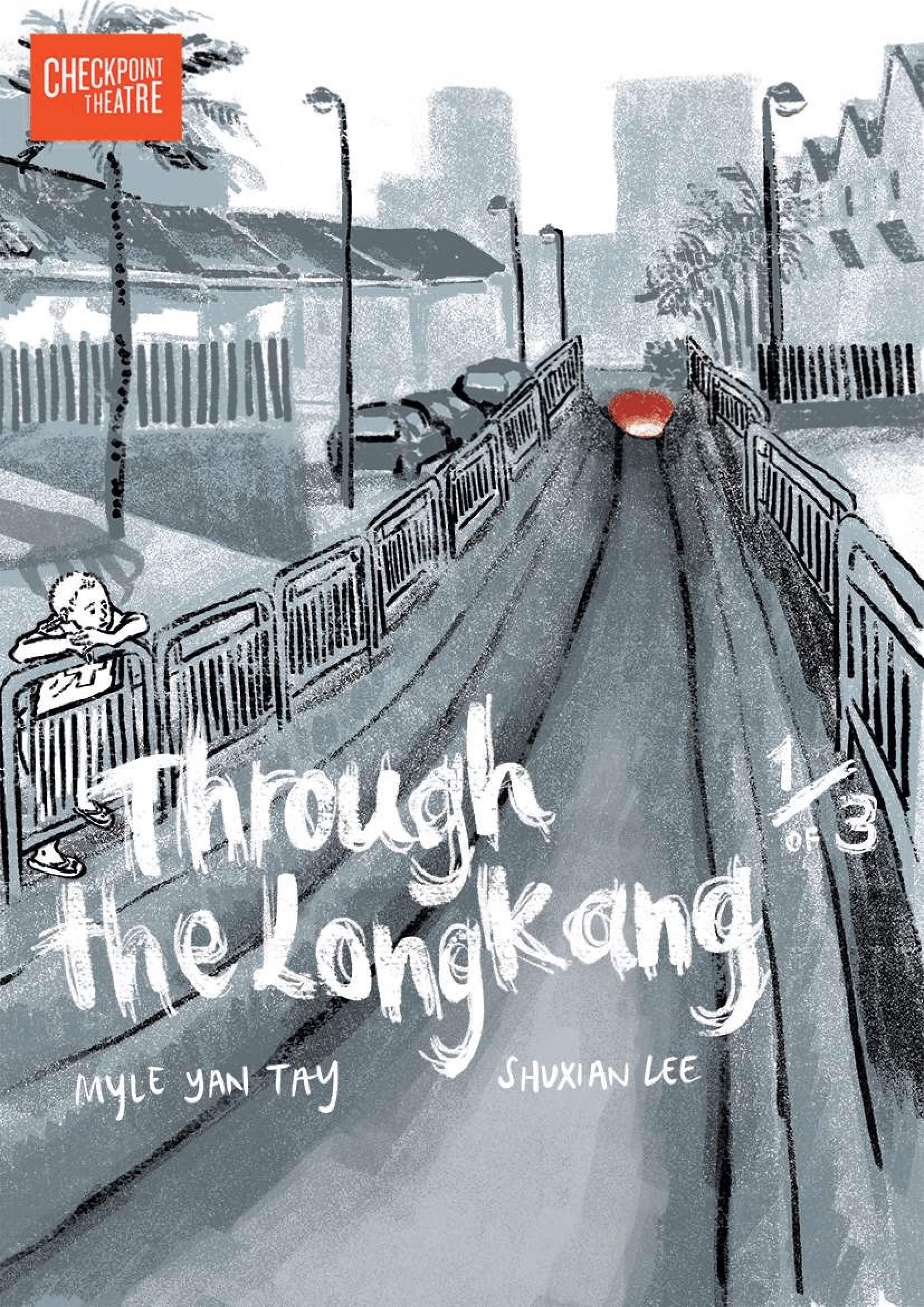 The cover of one of Yan’s comic books. Image provided by Checkpoint Theatre.
The cover of one of Yan’s comic books. Image provided by Checkpoint Theatre.
While at the College, Yan was frequently involved in directing productions and creative writing. He shared more about his current career as a writer and Associate Artist with Checkpoint Theatre, his works and experiences at Yale-NUS.
You published two books recently, Putu Piring and Through the Longkang #1. How do you think these books have presented local story-telling in a different light and how do they connect to Singaporeans?
Yan: Both these books, which were developed and published by Checkpoint, approach localness in different ways. They are both clearly set in Singapore, with many of the backgrounds adapted by Shuxian Lee, the artist, straight from photographs I took while wandering around Singapore. But they are very different genres, which affects how the stories relate to Singapore. Putu Piring speaks to what I see among my peers as this collective ennui, or detachment from modern life, with the people we are now, and the people we had hoped to be as children. I think that is something particular to Singapore, where our childhoods are so clamped down by the education system, that we view adulthood as freedom, when in fact, being a kid is the freest we will ever be. Through the Longkang #1 is less ideological, and is more me imagining a horror or monster story that could only take place in Singapore.
Are there any upcoming books that you are working on and what are the messages that you hope to convey through them?
Yan: I am working on the next two issues of Through the Longkang and an untitled novel project. The remaining issues of Through the Longkang will wrap up the adventures of issue one, promising plenty of freaky pages for readers. The novel project goes back to my interests in human rights, examining primarily notions of personal and punitive justice in Singapore, through the lens of a dissatisfied, disillusioned, and slightly disturbed Singaporean teenager.
During your time at Yale-NUS, you participated actively in directing, writing and production work. What are some of your more memorable projects and why?
Yan: Easily, the most memorable project for me in Yale-NUS was working on Overtime: An Original Musical. This production was the centre of my life for a year, from my second year going into my third. It was the brainchild of me and Nathaniel Mah (Class of 2020), a close friend, and fellow performer in Yale-NUS Improv. After we had formed the skeleton of the plot, he would sit beside me and write songs on the piano for months while I wrote scenes for the script. We then casted other Yale-NUS students, who would become our great friends, to perform in the production. Each of them brought unique perspectives to their characters and arcs. For a semester, I led rehearsals with the actors while Nathaniel led rehearsals with the live band.
The reason I look back on it so fondly is not just because I am very proud of the production we created, but really because of the team we formed. Rehearsals were the highlight of my day because there was such a warm and generous energy from the performers, the band, and the production team. It felt like a gargantuan project at the time, but it was never overwhelming because we had this incredible community working with us. It was also really moving how the larger Yale-NUS community supported us in droves when the staging began; we had to let our peers sit on the stairs of the Black Box after they did not manage to get tickets for the show before we sold out.
How have your experience and diverse exposure in College inspired you to take the career path you are currently on and how have they helped you to achieve what you wanted?
Yan: In Yale-NUS, I often felt like I was occupying two very distinct mindsets. Academically, I was a Global Affairs major, studying human rights and international relations. And outside of that, I spent most of my time with the creative arts, either writing or directing. Having the opportunity to pursue both these things at the same time in Yale-NUS gave me the space to not just grow as an artist, but to realise what I wanted my art to be about. My academic studies deeply affected the kinds of things I still write about, or the way I approach a topic through my work.
After graduation, you have been involved in contributing back to the Yale-NUS community. For example, you conducted a Playwriting Masterclass for students on 4 June 2021. What other ways would you wish to stay connected with the community and what encourages you to do so?
Yan: I often think about how Yale-NUS, for me, was exactly where I needed to be to grow artistically. It gave me the chance to create work on a scale that would have been unachievable in other institutions, while still having that autonomy over those projects. This would not have been possible without the support of the incredibly passionate and talented creative collaborators I met at the College, who read drafts, organised productions, and performed in these works. As the College leaves its infancy and grows in size, I am keen on helping where I can, to help keep that creative tradition going, while letting students make their own choices.
Do you have any tips and advice for Yale-NUS students who are looking at entering the artistic or creative industry?
Yan: My biggest advice is just do as much as you can, and to be okay with failing. I look back on a lot of early projects I embarked on in the College, and though they were not what I had hoped they would be, they allowed me to gain valuable experience, refined my practice, and introduced me to new people I would not have met otherwise. The Yale-NUS arts community is a bit of a bubble; but that is also a good thing. It is a safety net that gives you the chance to try, experiment, fail, and then try again.

